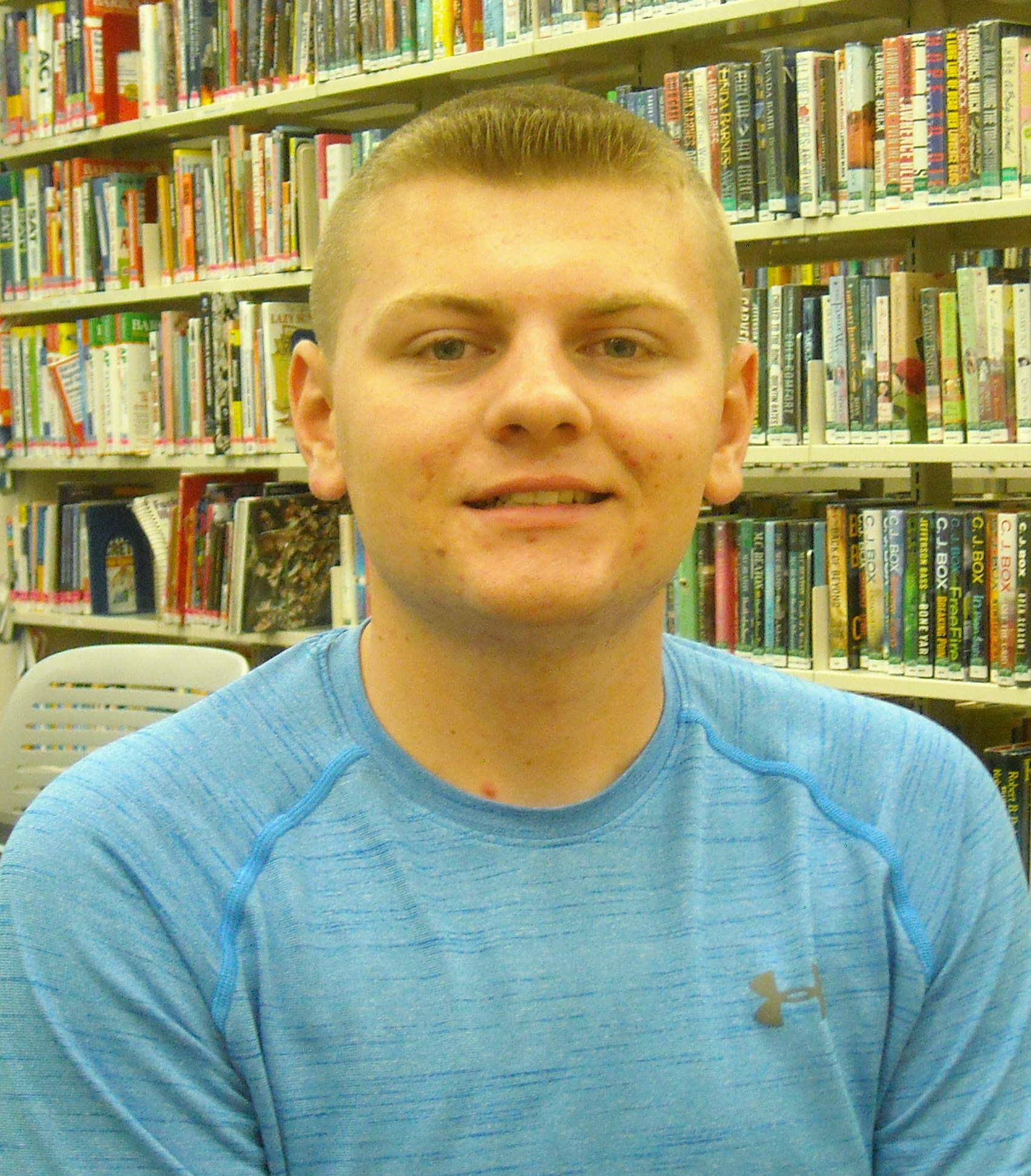
BY BARRY WARNER
The purpose of the North Rockland High School Interact Club, sponsored by the nonprofit North Rockland Rotary, is to provide opportunities for young people to work together in a world fellowship dedicated to service and international understanding.
The goals of Interact are “to recognize and develop constructive leadership and personal integrity.” The ‘Service Above Self’ organization provides service to others, promotes integrity and advances world understanding and goodwill through its friendly association of community leaders. This week’s Rockland County Times Volunteer of the Week is North Rockland High School student Kyle O’Grady, president of the Interact Club.
“As president of the Interact Club, I oversee the meetings and develop volunteer opportunities for 60 members, such as four blood drives during the year. North Rockland was the top high school in the Hudson Valley and was given an award at a Yankee game for 600 blood donations collected. Our members went into the community to talk about the importance of donations, hung posters, set up for the blood donors and cleaned the area after the event,” O’Grady told the Rockland County Times.
He credited the high school’s principal, Dr. Gill, for helping him learn how to be a leader and work well with other people. Explaining the activities of Interact and himself, he said, “Our members work at spaghetti dinners and pancake breakfasts with the North Rockland Rotary to raise money for scholarships for high school seniors. I was a recipient of a scholarship award and plan to attend Iona College in New Rochelle, where I intend to join a Rotaract Club, which is a Rotary-sponsored service club for young men and women ages 18 to 30. Rotary International is also involved around the world with an ‘End Polio Now Campaign’ and ‘building clean water wells throughout Africa, Asia and Latin America.’ I volunteer to make this world a better place. The ‘rent’ you pay on earth is the service you provide to others, so they can lead a better life.”
Many lifesaving medical treatments and procedures involve blood transfusions and would not be possible without a safe and reliable blood supply. A decision to donate blood can save a life or several lives if the blood is separated into its components. Whole blood contains red blood cells, white cells, plasma or platelets, which can be transfused separately.
On September 29, 1979, Rotarians and delegates of the Philippine Ministry of Health looked on as volunteers administered drops of the lifesaving Sabin polio to children in the Manila barrio. A contract was signed committing Rotary International and the Philippine Government to a joint multiyear effort to immunize about 6 million children against polio.
For millions of people throughout Africa, Asia and Latin America getting clean water is a daily struggle. More than 80 percent of all sickness in the world is attributed to unsafe water. Nearly 1 billion people are without access to improved water sources and every 8 seconds, a child dies because of this crisis. Rotary clubs are rallying together to provide clean water and sanitation to save lives.
There are many ways that Rotary Clubs are involved in water projects: WAPI (Water Pasteurization Indicator) is a simple indicator that shows water has reached pasteurization temperature and is safe to drink. Pasteurization destroys all microorganisms that cause diseases from drinking contaminated water and milk.
Rainwater Harvesting is collecting the run-off from a structure in order to store it for later use. Usually, this involves harvesting the rain from a roof. The rain will collect in gutters that channel the water into downspouts and then into a storage vessel like a rain barrel. Water Purifi cation Systems powered by solar energy could provide remote communities in India with clean drinking water.
Water contamination is a major problem in the developing world. To make dirty water safe to drink, visible traces of waste are removed with fi lters and then any remaining organic matter and bacteria are broken down. This system uses sunlight to generate high-energy particles inside solar-powered materials, which activate oxygen in the water to ‘incinerate’ harmful pollutants and bacteria.
Well Installation-Submersible pumps which are located in the well last 8 to 10 years before they need to be replaced. For many wells drilled into the sand and gravel aquifer, the amount of casing or pipe that lines the well hole, is nearly the same as the depth of the well itself.
For additional information about this nonprofit organization, visit www.northrocklandrotary.org.

You must be logged in to post a comment Login